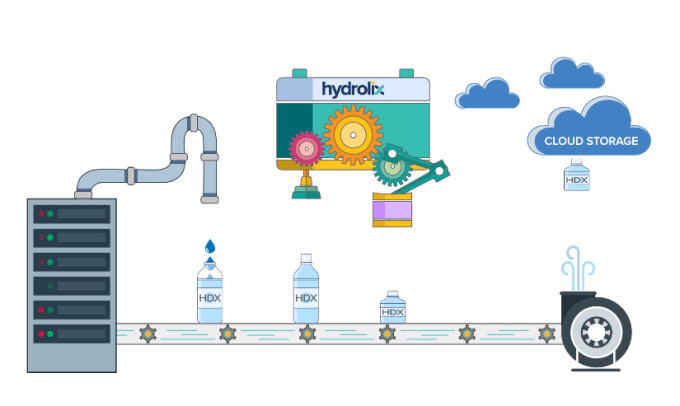Hydrolix seeks to make storing log data faster and cheaper
In 2008, Marty Kagan, who'd previously worked at Cisco and Akamai, co-founded Cedexis, a (now-Cisco-owned) firm developing observability tech for content delivery networks. Fellow Cisco veteran Hasan Alayli joined Kagan at Cedexis in 2012 as a technical lead, and the two worked together for a number of years.
As Cedexis grew and began collaborating with larger and larger partners, both Kagan and Alayli became acutely aware of the cost of data storage — and in particular the cost of storing the data logs from services and infrastructure.
"The expense of storing the logs that were essential to our business was going to be one of Cedexis’ biggest expenses, second only to payroll," Kagan told TechCrunch. "This disturbing cost burden weighed heavily on our minds, even after Hasan and I each moved on to our next adventures."
It's not just Cedexis. A recent poll by Wasabi, a cloud data storage startup, found that 53% of companies are exceeding their storage budget in part because they're using more capacity than planned. Ninety percent of the companies responding to the survey said that they expect to increase their storage budgets sometime this year.
So, in 2018, looking to address a log data cost problem they saw as industry-wide, Kagan and Alayli joined forces to launch Hydrolix. Hydrolix is a "streaming data lake" platform that provides a repository for log data from various sources and mechanisms to deliver that data to apps in real time.

Kagan and Alayli read the market well, it seems.
Hydrolix doubled revenues from Q3 to Q4 in 2023 and grew another 75% in Q1 of 2024, Kagan says. Annual recurring revenue stands at roughly $6 million, and the startup is attracting new investments. This week, Hydrolix closed a $35 million Series B round led by S3 Ventures with participation from Nava Ventures, Wing Ventures, AV8 Ventures and the Oregon Venture Fund, bringing the company's total raised to $68 million.
"Because log data contains the facts businesses generate, it is highly valuable," Kagan said. "And yet because it has traditionally been expensive to store and query, it is the data most likely to be discarded after only a short time period. Our streaming data lake platform combines real-time stream processing, decoupled storage and low-latency indexed search to deliver a high-performance and yet cost-efficient log management system."
Hydrolix's platform powers "log data-intensive" apps for security, observability, AI and machine learning and even advertising, marketing, travel and retail. Customers can run the platform on their own cloud infrastructure or as a "data layer" for powering pre-built partner-conceived apps.
"All Hydrolix data is 'hot,' eliminating the need to manage multiple storage tiers," Kagan said. "This approach allows Hydrolix to offer its customers real-time query performance at terabyte scale … Our software is applicable to a wide range of use cases that require both real-time analysis of high-volume streaming logs and ad hoc analysis across years of raw data."
Hydrolix, which has ~90 customers across enterprise and the public sector and a Portland, Oregon-based workforce of around 60 people, has further expansion on the mind. Buoyed by the Series B, the company plans to scale up its sales and partner channel operations as well as its divisions focused on marketing and customer onboarding.
"The look ahead for pipeline acquisition and expansion deals is strong," Kagan said. "In fact, our recent growth is one of the primary reasons driving interest in the Series B."

 Yahoo Movies
Yahoo Movies 
